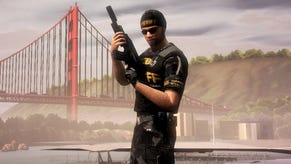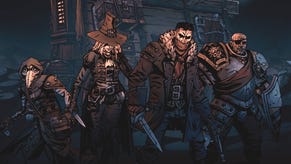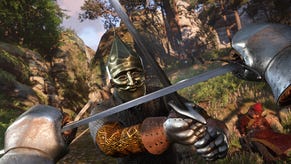New APB dev on Realtime's mistakes
Bureaucracy blamed for MMO's failure.
As unmitigated disasters go, David Jones' ambitious online shooter APB is right up there. After years in development and more than $100 million of investment it launched to horrid reviews last July, sinking its creator Realtime Worlds after just 37 days on release.
Free-to-play specialists GamersFirst have since taken on the huge task of resurrecting the title and recently sat down with Eurogamer to discuss where the game's original developer went wrong.
The key issue it has had to address, according to COO Bjorn Book-Larsson, is balance.
"When they released it they didn't have enough time to polish all the components and make it coherent," he explained.
"Shooting and driving weren't really feeling that great and they had made what we think were some silly business decisions.
"The first gun you got only let you shoot 25 metres, while the people who had been in the game for a long time could shoot 100 metres. They could kill you at four times the range.
"The first wave of players that went into the game would slaughter everyone else. No one else had a chance. It was no longer a shooter based on specialised skills. It was literally a slaughter-fest. If you look at the reviewers who didn't like it, generally they were showing up and getting killed."
Bjorn Book-Larsson conceded that after so long in development the game had an impeccably coded core. However, he went on to speculate that the huge team size and layers of bureaucracy stood in the way of translating that into a game that was fun to play.
"We have a little story where Scott Stevenson, who's now our developer and producer, was saying how they had this problem where when you ran up to a car and clicked to get in, if nobody was in the car you'd often end up in the back seat.
"That makes no sense. Like, how many times do you really want to get in the backseat? But for purity of design they had all these debates and essentially that issue remained in the game for 476 days.
"Now that we've taken it over, the new team had a meeting and said 'we need to fix it' – and it was done in 30 minutes. That's the essence of the difference. We were just like, 'F***, that's stupid, let's fix it.'"
Another problem with the spiralling team size, according to Book-Larsson, were regular communication breakdowns between different departments.
"There were teams who were supposedly sitting idle while they knew about the game's problems but didn't have the green light to fix the bugs. Nobody from the design team had told the other team that they could do it."
The situation was made worse by more wide-ranging issues between teams in the US and the UK.
"The US guys didn't want to let the UK guys get involved with stuff," he explained.
"They had these weird breakdowns between their teams. It was operated out of the US but then it was built in the UK. They didn't really focus on bridging those two cultures. One of the things we've done from the outset is create a single team mentality."
Book-Larsson refused to attribute all the blame for the game's problem to its creator, games industry veteran David Jones.
"I don't think he was that interested in corporate management or politics or general corporate stuff. He's just a game guy. He's a really, really good guy by the way, but I think people around him created this very political, hard-to-work-with organisation.
"In some ways the organisation around him just ran away. They got a bunch of money and the whole thing exploded."
Since picking up the title back in September, GamersFirst has spent the last four months addressing these issues and moving the game over to a free-to-play model. Unless you made it into the closed beta that's currently underway, you'll be able to check out the fruits of its labour later this year.
For more on APB's demise, be sure to check out Eurogamer's The Fall of Realtime Worlds feature from November last year.












